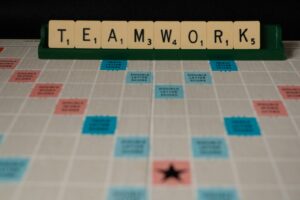In today’s fast-paced world, the ability to solve problems efficiently and creatively is more valuable than ever. Whether in your personal life or professional career, strong problem-solving skills can help you overcome challenges and achieve your goals. But how do you practice and enhance these skills in an engaging and practical way? One of the most entertaining and effective methods is participating in an escape room experience.
Escape rooms are more than just a fun activity. These immersive adventures are carefully designed to test your critical thinking, teamwork, and decision-making abilities under pressure. By solving puzzles, deciphering clues, and racing against the clock, you can build and refine essential problem-solving skills in a dynamic and memorable setting. Let’s dive into how escape rooms can enhance your problem-solving abilities and why they’re a worthwhile activity for anyone looking to grow personally or professionally.
1. Think Critically and Creatively
Escape rooms challenge participants to think outside the box. The puzzles and challenges within these rooms often require a mix of logic, observation, and lateral thinking. For example, you might need to decipher a riddle, recognize a pattern, or use objects in unconventional ways to progress. This constant demand for critical and creative thinking strengthens your ability to approach problems from multiple angles and find innovative solutions.
2. Adapt to High-Pressure Situations
The ticking clock in an escape room simulates a high-pressure environment where quick thinking is essential. These time constraints push you to make decisions efficiently while maintaining focus and composure. Practicing problem-solving under pressure can translate to real-life scenarios, such as meeting tight deadlines or navigating unexpected challenges at work.
3. Enhance Teamwork and Collaboration
Escape rooms are typically designed for groups, making them an excellent opportunity to practice teamwork. Solving the room’s challenges often requires effective communication, delegation of tasks, and leveraging each team member’s strengths. By working collaboratively, you learn to value different perspectives and coordinate efforts to achieve a common goal—skills that are crucial for success in any team-oriented environment.
4. Improve Attention to Detail
In an escape room, every clue counts. The smallest detail—a misplaced object, a subtle pattern, or a seemingly irrelevant piece of information—could be the key to solving a puzzle. This environment trains your brain to notice and analyze details you might otherwise overlook, sharpening your observational skills and attention to detail.
5. Develop Resilience and Perseverance
Not every puzzle in an escape room is solved on the first try. These moments of trial and error teach resilience and the value of persistence. You learn to approach setbacks as opportunities to reassess your strategy and try again, fostering a growth mindset that’s essential for tackling challenges in all areas of life.
6. Foster Strategic Thinking
Escape rooms require you to prioritize tasks, allocate resources, and plan your approach to maximize efficiency. These elements mirror strategic thinking in real-world scenarios, such as project management or business planning. Practicing these skills in a playful setting helps you build confidence in your ability to strategize effectively.
7. Boost Decision-Making Skills
Every action in an escape room is a decision, whether it’s choosing which puzzle to tackle first or deciding how to use a particular clue. The need to make timely and informed decisions enhances your decision-making abilities and teaches you to weigh options carefully—even when the stakes are high.
8. Encourage Continuous Learning
Escape rooms often feature diverse challenges that test a wide range of skills, from logic and mathematics to language and spatial reasoning. This variety encourages continuous learning and intellectual curiosity, as you’re constantly exposed to new types of problems and solutions.
9. Create Memorable Learning Experiences
One of the most powerful aspects of escape rooms is their ability to turn problem-solving into an enjoyable and memorable experience. By engaging multiple senses and emotions, these activities leave a lasting impression, making the lessons learned more impactful and easier to recall in real-life situations.
Tips for Maximizing Your Problem-Solving Development in Escape Rooms
- Embrace the challenge: Don’t be afraid to experiment and take risks. Learning from mistakes is part of the process.
- Communicate openly: Share your thoughts and ideas with your team to ensure everyone’s input is considered.
- Stay organized: Keep track of clues and solved puzzles to avoid confusion as the game progresses.
- Reflect afterward: Take time to discuss what worked well and what could be improved. This reflection reinforces the skills you’ve practiced.
Conclusion
Escape rooms are more than just entertainment; they’re a valuable tool for personal and professional growth. By challenging your mind in a dynamic and engaging way, these experiences help you develop critical problem-solving skills that can be applied to everyday life. Whether you’re looking to boost your creativity, improve your teamwork, or simply have fun while sharpening your mental acuity, escape rooms offer a rewarding and unforgettable experience. Ready to take your problem-solving skills to the next level? Step into an escape room and let the adventure begin!




















